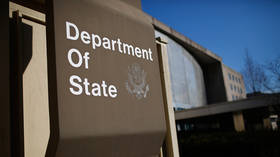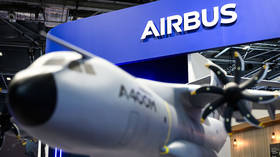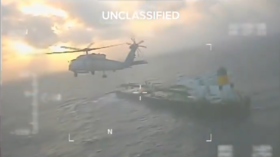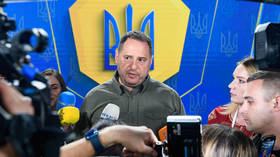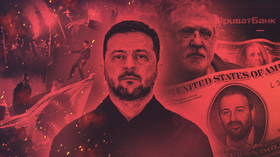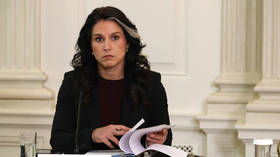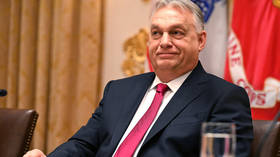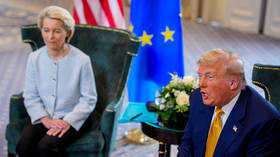Biden warns of nuclear ‘Armageddon’
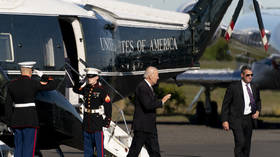
US President Joe Biden has said the risk of nuclear war is at the highest level since the peak of Cold War brinkmanship in the 1960s. He further claimed that Russia could seek to deploy some of its huge arsenal in Ukraine.
Speaking at a fundraiser for Democratic candidates in New York on Thursday, Biden invoked a biblical reference to warn of potential nuclear annihilation, stating that soaring hostilities between Russia, Ukraine and the West could escalate to outright “Armageddon.”
“[For the] first time since the Cuban missile crisis, we have a direct threat of the use [of a] nuclear weapon if in fact things continue down the path they are going,” the president said, apparently referring to the war still raging in Eastern Europe.
“We have not faced the prospect of Armageddon since [US President John F.] Kennedy.”
Biden went on to assert that the Russian military is “significantly underperforming” in Ukraine, saying that could raise the stakes in the conflict, ultimately leading to a dangerous spike in violence should Moscow become desperate.
Despite the president’s dire warnings, however, White House press secretary Karine Jean-Pierre said earlier this week that officials had not seen “any reason to adjust our own strategic nuclear posture,” as there is no indication that Russia is “preparing to imminently to use nuclear weapons.” Pentagon spokesperson Brigadier General Pat Ryder echoed those remarks on Thursday, telling reporters that Russia has not made a decision to use nukes.
Still, US officials have repeatedly pointed to the possibility of an atomic strike throughout the war, as well as the use of biological or chemical weapons. Although Moscow has shown no signs that it intends to deploy such weapons, Russian President Vladimir Putin said in a recent speech that his country has “various means of destruction,” and that he would not hesitate to use them to defend Russian territory. “It’s not a bluff,” he added.
The 1962 Cuban Missile Crisis erupted after the Soviet Union stationed nuclear-capable munitions in Cuba in retaliation for a similar move by Washington in Turkey. It is generally considered to be the closest the East and West ever came to a full-on nuclear exchange during the decades-long Cold War, but was ultimately resolved after both sides agreed to reverse their deployments.
